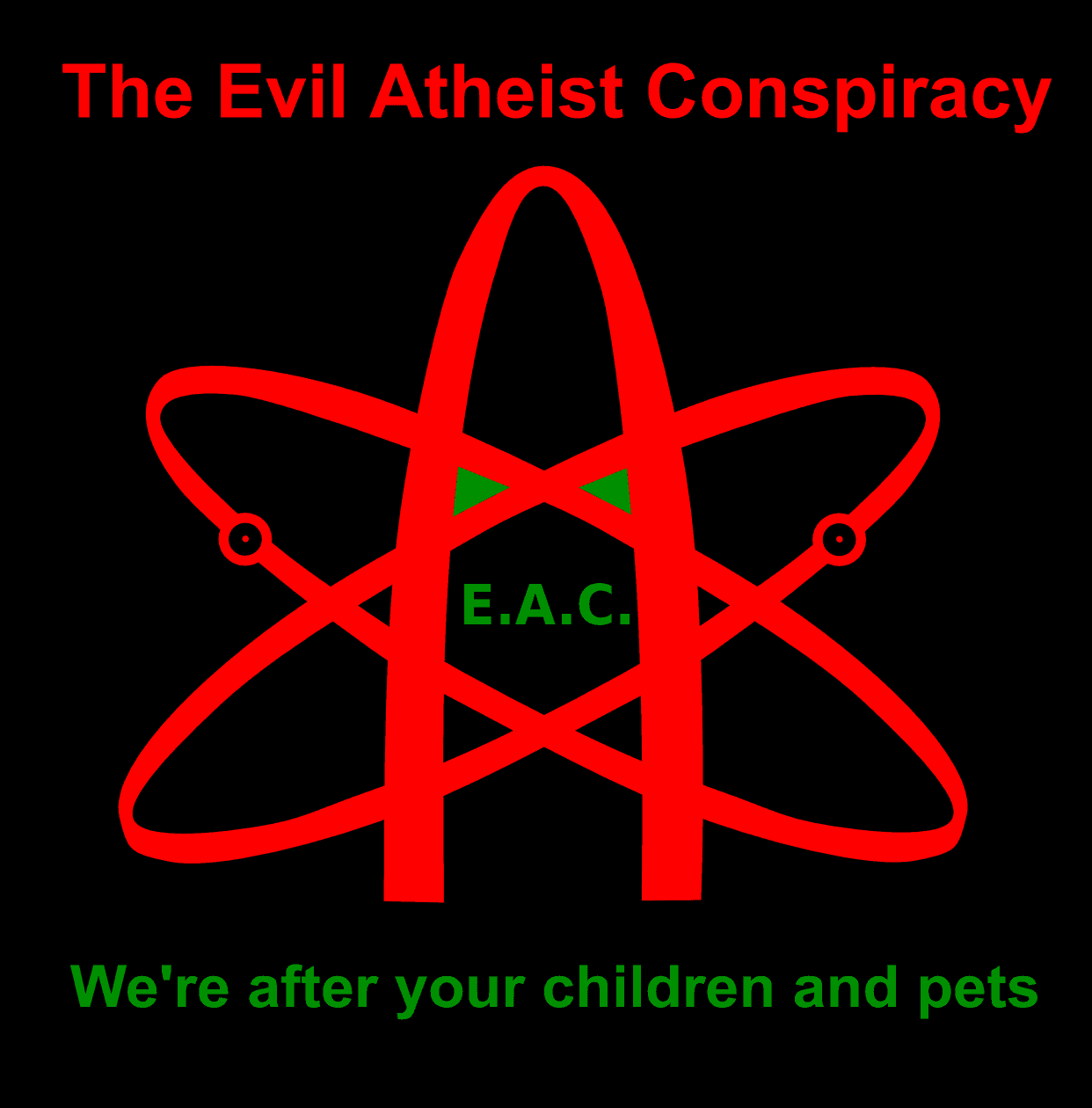- See as well the One-Minute Apologist on Gottfried Wilhelm Leibniz
- View the Kalam Cosmological Argument animation video
- Infinite Regress and the Leibnizian Cosmological Argument, Reasonable Faith
William Lane Craig


Arguing Against Self ~ “Choosing” Determinism
Video Description:
See many more critiques against “Physicalism” here.
In the fourth podcast critique of the Sam Harris interview of Jerry Coyne… free-will is ejected as merely an illusion. Dr. William Lane Craig notes that ALLL the previous talk of morals, one position [like atheism] being true/correct in contradistinction to another [like theism], justice, Islam being “bad,” and the like… are all negated by this last segment regarding free-will.
Even my previous upload, where Jerry Coyne was talking about “how science” should operate ends up having no meaning in his viewpoint.
Included in this upload ~ after Dr. Craig quickly points out the self-referential negating going on between these two ~ is a “Check-Mate” of sorts of Sam Harris’ premise in his book, The Moral Landscape. This took place between Dr. Craig and Dr. Harris, and can be found in full, here.
As usual, one should visit the source of these great refutations in the ministry of Reasonable Faith ~ http://www.reasonablefaith.org/
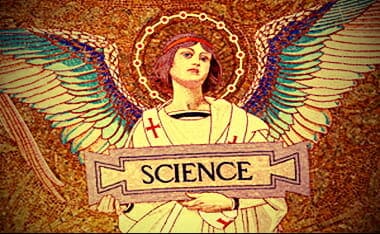
Dr. Craig Critiques Jerry Coyne’s Laboratory Contention
At Reasonable Faith’s podcast, William Lane Craig delves into Jerry Coyne’s contention about the divide between science and religion. Listen to the entire episode here.
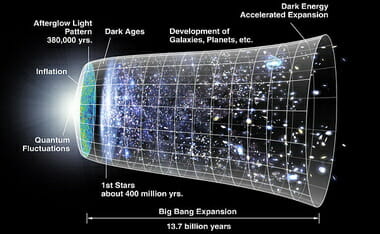
Dr. William Lane Craig Discusses the Borde-Guth-Vilenkin Theorem
First, let Alexander Vilenkin define “nothing”
Borde-Guth-Vilenkin Theorem Discussed:
Technical Presentation by Vilenkin Himself:
More on the BGV Theorum:
How atheists misuse the BGV theorem:
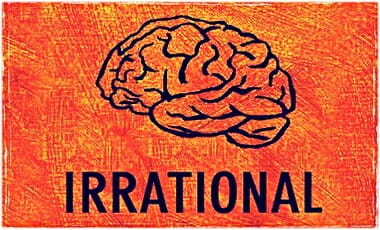
Atheists Assume Non-Material “Beliefs” Every Day
Here is a detailing of the above in a book I recently read:
“There is no need for God,” Atkins declared. “Everything in the world can be understood without needing to evoke a God. You have to accept that’s one possible view to take about the world.”
“Sure, that’s possible,” Craig admitted. “But—”
[Interrupting] “Do you deny that science can account for everything?” challenged Atkins.
“Yes, I do deny that science can account for everything,” said Craig.
“So what can’t it account for?” demanded Atkins.
“I think that there are a good number of things that cannot be scientifically proven, but that we’re all rational to accept,” Craig began.
[Interrupting] “Such as?”
“Let me list five,” Craig continued. “[First,] logical and mathematical truths cannot be proven by science. Science presupposes logic and math so that to try to prove them by science would be arguing in a circle. [Second,] metaphysical truths like there are other minds other than my own, or that the external world is real, or that the past was not created five minutes ago with the appearance of age are rational beliefs that cannot be scientifically proven. [Third,] ethical beliefs about statements of value are not accessible by the scientific method. You can’t show by science that the Nazi scientists in the camps did anything evil as opposed to the scientists in Western democracies. [Fourth,] aesthetic judgments cannot be accessed by the scientific method because the beautiful, like the good, cannot be scientifically proven. And finally, most remarkably, would be science itself. Science cannot be justified by the scientific method, since it is permeated with unprovable assumptions. For example, the special theory of relativity—the whole theory hinges on the assumption that the speed of light is constant in a one-way direction between any two points, A and B, but that strictly cannot be proven. We simply have to assume that in order to hold to the theory!”
Feeling vindicated, Buckley peered over at Atkins and cracked, “So put that in your pipe and smoke it.”
Frank Turek, Stealing from God (Colorado Springs, CO: NavPress, 2014), 162-163.

Can a Homosexual Be A Christian? Dr. William Lane Craig Responds
William Lane Craig on the question if a Christian can be gay? Also, read Craig’s article: Christian Homosexuals? Also, see my post on this matter: Gay Christians?

Jesus Last Words on the Cross ~ A Supposed Contradiction Examined
I have been politely challenged by a person on one of my YouTube uploads. I responded to one challenge already. After responding to it I was challenged with another supposed contradiction in the Bible. I doubt highly the questioner is truly in search for truth in these matters as much as they are more concerned in a masochistic drive to circle the wagons around their unbelief. So I suggested two books for him to get to answer his own questions rather than ask me.
- The Big Book of Bible Difficulties: Clear and Concise Answers from Genesis to Revelation, by Norman Geisler and Thomas Howe;
- and, the New International Encyclopedia of Bible Difficulties, by Gleason Archer.
However, after the following challenge I said he should read one book:
- Cold-Case Christianity: A Homicide Detective Investigates the Claims of the Gospels, by J. Warner Wallace
But… he pushed another “contradiction.” So I am responding to it. But I am not at this person’s beckon-call.
Here is the challenge:
The different gospels clearly contradict each other on Jesus’ last words on the cross.
Matthew 27:46: Eli, Eli, lama sabachtani? that is to say, My God, My God, why hast thou forsaken me?
(Verse 50 says he cried out again before dying, but no mention is made of spoken words.)
Luke 23:46: Father, into thy hands I commend my spirit.
John 19:30: It is finished
I then asked if he had seen Monty Python’s “Life of Brian.” He said “No.” I linked to the below video to make a point:
[I love the parts where they do not hear what Jesus is saying, and so substitute what they think He said: “Blessed are the Greeks,” for example.]
I respond:
Similarly, you seem to have an unrealistic view of the historical scene we know happened at Calvary. There were Roman soldiers keeping people back, gambling, talking, etc. Ambiant noises as well, horses, carts on a nearby road/trail, or the “clanging” of a blacksmith or shaking out of rugs, and the like. Likewise, people around the scene were crying, talking, some closer, others further away from the crosses.
- An after thought: The skeptic seems to think that the crucifixion scene was in a sound proof room where the disciples were all the same distance from Jesus with a Dictaphone up to His mouth. What an untenable belief!
In fact, John mentions he was close to the Cross, probably hearing things the others didn’t:
John 19:25-27 “Standing by the cross of Jesus were His mother, His mother’s sister, Mary the wife of Clopas, and Mary Magdalene. When Jesus saw His mother and the disciple He loved standing there, He said to His mother, ‘Woman, here is your son.’ Then He said to the disciple, ‘Here is your mother.’ And from that hour the disciple took her into his home.”
Combining the three accounts, we read:
“And about the ninth hour Jesus cried with a loud voice, saying, ‘Eli, eli, lama sabachthani?’ that is to say, ‘My God, my God, why hast thou forsaken me?’….Jesus, when he had cried again with a loud voice said , ‘Father, unto thy hands I commend my spirit:’ (notice the cry with a loud voice is separated from Jesus commending His spirit, probably quieter), then he said softly, ‘It is finished:’ and he bowed his head, and gave up the ghost.”
JUST like a police officer or insurance adjuster will do from multiple eyewitnesses to a vehicle accident. People who see the same incident — maybe from a similar viewing position or from different places [say on different corners] — have different/varying descriptions… of the same incident.
In-other-words, there is no contradiction.
IN FACT, if these descriptions were identical, I would question if they were written by different people. I would charge collusion, like two criminals getting their story straight before talking to a police officer.
He responds:
Yes, but some Christians including yourself claim that the Bible is perfect and has zero contradictions. Three people claim Jesus said three different things right before he died.
I respond:
It doesn’t have any real contradictions. I have written about inerrancy here. For instance, you have not shown a contradiction., Jesus said all those things before he dies, people just heard them and others did not. It is not a contradiction.
John heard His [Jesus’] last ~ QUIET ~ words (remember, he was closer);
…AND…
Matthew heard His [Jesus’] last ~ LOUD ~ words.
Again, you have not shown a contradiction that isn’t easily explained by the historical setting. Unless you reject my verse documenting John’s closeness to the Cross and accept the verses you are using as valid? A double standard?
You seems to not be distinguishing between what a contradiction is verses a difference:
First, it’s important to distinguish between contradiction and difference. Just because two passages are different, doesn’t mean they contradict each other. For example, Matthew 27:5 says that Judas hung himself, while Acts 1:18 says that he fell to the ground and burst wide open. These are two different accounts of Judas’ death, but they are not formal contradictions. A contradiction would be one passages saying, “Judas hung himself and died” and another passage saying, “Judas didn’t hang himself; rather, he threw himself from cliff and splattered on the ground.”
In the Bible, it could be that he hung himself in a high tree, and then the rope snapped and he fell headlong and burst all over the ground. Or maybe his attempt at hanging himself didn’t work (Matthew 27 doesn’t actually say he died from hanging himself), and so he went and threw himself from a cliff, as recorded in Acts.
Or maybe there are other options. The point is, many apparent contradictions aren’t really formal contradictions at all. They’re simply different accounts, different perspectives, or different versions of the story…
Some other thoughts on this are as follows. One I particularly like Youth Apologetics Training:
I would define someone’s last words as what they spoke during the last movements of their lives. The patriarch Jacob spoke many last words over his sons before he died (Gen 49). His long prophecy over his boys could all be considered his last words.
Even the idea of “last words” is being defined in a literal, wooden sense when more of an “idea” of last words is being presented. (Something, ironically, we are accused of, that is: being literal or taking the Bible as literal. Here we see the skeptic doing so, incorrectly I night add.) Or at least is an option that takes away a supposed contradiction. WIKI notes the definition:
- Last words or final words are a person’s final articulated words said prior to death or as death approaches. (emphasis added)
Apologetic Press discusses these verses a bit:
On a regular basis, atheists, agnostics, skeptics, and Bible critics write our offices at Apologetics Press. Some of the feedback we receive is simply to inform us how naïve Christians are for believing in God, Jesus, and the Bible, or how ignorant creationists are for disbelieving in macro-evolution. We also receive numerous questions from these non-believers. (Unfortunately, due to the volume of inquiries we receive, we are unable to answer all of them.) Recently, one Bible critic sent the following note:
You say the Bible does not contradict itself but I have found several contradictions in the Bible. For example, in John 10:30 Jesus says that he and his father are one then in John 14:28 he says his father is greater than he. Did he change his mind?
So what were Jesus’ last words? Well Matthew, Luke and John seem to have all heard something different. In Matthew 27:46,50 Jesus said my god my god why has thou forsaken me then died but in Luke 23:46 he claims Jesus said father unto thy hands I commit thy spirit then died and finally in John 19:30 he claims that Jesus said it is finished then died. Well which one is it? These are just a few of many. Why would someone say the Bible doesn’t contradict itself when if you have read the words in its pages it does not take a genius to see all the falsities within.
Consider how easily these questions can be answered simply by remembering two basic rules of interpretation.
First, supplementation is not equivalent to a contradiction. For example, suppose you tell a friend about your trip to Disney World. You mention that you went to Magic Kingdom on Monday. Later, you state that you went to Hollywood Studios on Monday. Have you lied? Are these two contradictory statements? Not necessarily. It could be that you visited both Magic Kingdom and Hollywood Studios on the same day. Similarly, the seven statements the gospel writers recorded that Jesus made from the cross (including the three aforementioned statements—Matthew 27:46; Luke 23:46; John 19:30) all supplement one another. Nothing is said about Jesus making only one of these statements. What’s more, silence does not negate supplementation. Simply because John wrote that our suffering Savior said, “‘It is finished!’ And bowing His head, He gave up His spirit” (John 19:30), does not mean that Jesus could not also have said, “Father, into Your hands I commit My spirit” after He had cried out, “It is finished,” and before His death (Luke 23:46). Nothing in John 19:30, Luke 23:46, or Matthew 27:46,50 is contradictory. We simply have three different statements that Jesus made at three different moments during His crucifixion….

Tim Stratton’s Apologetic Journey: Minimizing Atheism in the Church
A video letter to Reasonable Faith Ministries that is important:
Imagine being the youth pastor at your church, leading a Bible study for two years, only to have an elder’s son tell you that he’s decided to become an atheist. Tim Stratton was shocked. “Why would you believe that?” he exclaimed. The student responded, “I’ll tell you what. If you can answer just one of these questions, just one of these objections, I’ll stick around.” However, Tim was not equipped to answer any of the objections the young man had found reading the New Atheists.
Tim was shaken, but he realized that as a shepherd of God’s people, he needed to learn how to defend the sheep. That’s when he discovered the resources of Reasonable Faith. Tim says, “Wow! My life was transformed by the renewing of my mind. Now, I had reasons to believe!”

The Proper Evangelical Position on Same-Sex Marriage
This is an important discussion because Dr. Craig points out the proclivity for principles of special rights that counter equal rights. This podcast from Reasonable Faith (http://www.reasonablefaith.org/) is a great addition to the conversation we ALL should be having.
AGAIN, William Lane Craig does an excellent duty in treading the conservative Evangelical ~ Constitutional viewpoint in discussing Same Sex Marriage.
One should see my post on Christians who are living a chaste life or a changed life because of Christ!

Concepts: “Is Reality Merely a Perception?” (UPDATED)
(As usual you can enlarge the article by clicking on it.) I enjoyed this weeks Concepts by John Van Huizum. While he showed the usual lack of deep study and merely expresses opinion as such, he is right about one thing… reality is perception. In Planned Parenthood v. Casey (1996), the 9th District Appeals Court wrote:
“At the heart of liberty is the right to define one’s own concept of existence, of meaning, of the universe and of the mystery of human life. Beliefs about these matters could not define the attributes of personhood were they formed under compulsion of the State.”
I have a feeling that John would agree with the following statement:
“If relativism signifies contempt for fixed categories and men who claim to be bearers of an objective, immortal truth… From the fact that all ideologies are of equal value, that all ideologies are mere fictions, the modern relativist infers that everybody has the right to create for himself his own reality…”
More on Johns Relativism (cultural relativism/subjectivism, relativism, pluralism) later.
In Christian apologetics, often times the person doing the perceiving is said to have a pair of colored glasses on:
The right eyeglasses can put the world into clearer focus, and the correct worldview can function in much the same way. When someone looks at the world from the perspective of the wrong worldview, the world won’t make much sense to him. Or what he thinks makes sense will, in fact, be wrong in important respects. Putting on the right conceptual scheme, that is, viewing the world through the correct worldview, can have important repercussions for the rest of the person’s understanding of events and ideas… Raising one’s self-consciousness [awareness] about worldviews is an essential part of intellectual maturity.
Ronald H. Nash, Worldviews in Conflict: Choosing Christianity in a World of Ideas (Grand Rapids, MI: Zondervan, 1992), 17-18, 9.
After this mentioning of “perceptions,” or, really one’s worldview, John starts down his normal rabbit trail of ideas stuck together, his straw-men “set-ups,” and the like. For instance, perceptions are often changed… usually when an unprepared youth of faith goes off to college and finds a university teaming with…
➲ evolutionary psychology (for instance, atheist defender Sam Harris makes the Darwinian psychological statement that “…there’s nothing more natural than rape. Human beings rape, chimpanzees rape, orangutans rape, rape clearly is part of an evolutionary strategy to get your genes into the next generation if you’re a male.”);
ϟ science (often put forward in the classroom as “scientism“);
Ⓐ and militant skepticism.
…they will typically reject their childhood faith, and not set foot into a church till their thirties/forties. It is said that men stop going to church at 18 when their mom stops dragging them, and start back up when their wife drags em’ back (why men hate church).
People first became aware of the problem after hearing the results of a Barna Research Group study that said that between 67% and 94% of Christian students (depending on denomination), within 18 months of graduating high school, are no longer at church. This report was given in 2002 and showed that the largest protestant denomination, the Southern Baptist Convention, was losing an average of 88% of their students while in college. (Why Apologetics)
Typically though, later in life the person in question will start reading some scholarly Christian works, or family harkens them to their childhood faith, someone close dies, life hits em’ hard, something happens that draws them back into their faith. Even within someone’s faith there are levels of trust in believing. Professor Stokes points out that such doubt is natural to a person,
Often, however, the cause of our doubt isn’t what you might think. It isn’t necessarily the strength of the arguments that rattles us, but the way they resonate with the unbeliever in each of us (what the Bible calls the “old self”). We hear Tokyo Rose’s voice and she seems to make pretty good sense sometimes. Yet more often than not, if we look closely at the atheist’s arguments, we find that there is little substance. Seeing this can change the argument’s frequency and therefore break its spell. Believers often worry that their doubts signify the rapid approach of full-blown unbelief. But as pastor and author Tim Keller puts it,
Faith without some doubts is like a human body without any antibodies in it. People who blithely go through life too busy or indifferent to ask hard questions about why they believe as they do will find themselves defenseless against either the experience of tragedy or the probing questions of a smart skeptic.
All thoughtful believers—even those whose faith is mature—encounter doubt. Not a single person has had unadulterated faith. In any case, it certainly won’t do to ignore your doubts, and defusing them will only strengthen your faith. To be sure, doubts can be strong enough to become a trial in your life; but like all trials, they’re meant to refine faith, not stifle it.
Mitch Stokes, A Shot of Faith: To the Head (Nashville, TN: Thomas Nelson, 2012), xvii. (Emphasis added!)
So people are a bit more complicated than space could allow John to state, or that he cares to ponder. I will also agree with him that this conversation has been going on a very long time.* Cicero is a great example, he was born in 106 BC and died in 43 BC, and said the following in response to the skeptics of his day:
But if the structure of the world in all its parts is such that it could not have been better whether in point of utility or beauty, let us consider whether this is the result of chance, or whether on the contrary the parts of the world are in such a condition that they could not possibly have cohered together if they were not controlled by intelligence and by divine providence. If then the products of nature are better than those of art, and if art produces nothing without reason, nature too cannot be deemed to be without reason. When you see a statue or a painting, you recognize the exercise of art; when you observe from a distance the course of a ship, you do not hesitate to assume that its motion is guided by reason and by art; when you look at a sun-dial or a water-clock, you infer that it tells the time by art and not by chance; how then can it be consistent to suppose that the world, which includes both the works of art in question, the craftsmen who made them, and everything else besides, can be devoid of purpose and of reason? Suppose a traveller to carry into Scythia or Britain the orrery recently constructed by our friend Posidonius, which at each revolution reproduces the same motions of the sun, the moon and the five planets that take place in the heavens every twenty-four hours, would any single native doubt that this orrery was the work of a rational being? These thinkers however raise doubts about the world itself from which all things arise and have their being, and debate whether it is the product of chance or necessity of some sort, or of divine reason and intelligence;
Cicero, Nature of the Gods, Translated by H. Rackam, pp. 207-209
So yes, important topics and questions are new to every generation, but these queries have been asked for a very long time, and should continue to be. Believing that mankind will outgrow their “superstitious” faith is merely someone displaying their metaphysical naturalist presuppositions. Now on to another aspect of a statement by John. He said,
❂ “Atheism has been aided by scientific discoveries and rigorous questioning.”
I think this is true if one looks at the situation wrongly. When people do not try on other pairs of glasses, become skeptical of their skepticism, do not use self-refuting propositions (similar to Vincent Bugliosi), or study to see which worldview offers a better explanation, they can become ideologues (religious or secular):
… a “coherent worldview must be able to satisfactorily answer four questions: that of origin, meaning, morality, and destiny.” He says that while every major religion makes exclusive claims about truth, “the Christian faith is unique in its ability to answer all four of these questions.” These questions are the bedrock of any worldview… that holds any weight at least.
Ravi Zacharias, Deliver Us From Evil (Nashville, TN: Word Publishers, 1997), 219–220; taken from the first chapter of my book.
For example, apologist Lee Strobel talks to a philosopher about the evidence that culminated in many atheists rejecting (or wanting to reject) science because of its implications FOR God, or origins [Side note… Einstein introduced the Special Theory of Relativity in 1905, when applied to the universe as a whole in 1915, it became known as the General Theory of Relativity]:
When Albert Einstein developed his general theory of relativity in 1915 and started applying it to the universe as a whole, he was shocked to discover it didn’t allow for a static universe. According to his equations, the universe should either be exploding or imploding. In order to make the universe static, he had to fudge his equations by putting in a facto that would hold the universe steady.
In the 1920’s, the Russian mathematician Alexander Friedman and the Belgium astronomer George Lemaitre were able to develop models based on Einstein’s theory. They predicted the universe was expanding. Of course, this meant that if you went backward in time, the universe would go back to a single origin before which it didn’t exist. Astronomer Fred Hoyle derisively called this the Big Bang — and the name stuck!
Starting in the 1920’s, scientists began to find empirical evidence that supported these purely mathematical models. For instance, in 1929, the American astronomer Edwin Hubble discovered that the light coming to us from distant galaxies appears redder than it should be, and this is a universal feature of galaxies in all parts of the sky. Hubble explained this red shift as being due to the fact that the galaxies are moving away from us. He concluded that the universe is literally flying apart at enormous velocities. Hubble’s astronomical observations were the first empirical confirmation of the predictions by Friedman and Lemaitre.
Then in the 1940’s, George Gamow predicted that if the Big Bang really happened, then the background temperature of the universe should be just a few degrees above absolute zero. He said this would be a relic from a very early stage of the universe. Sure enough, in 1965, two scientists accidentally discovered the universe’s background radiation — and it was only about 3.7 degrees above absolute zero. There’s no explanation for this apart from the fact that it is a vestige of a very early and a very dense state of the universe, which was predicted by the Big Bang model.
The third main piece of the evidence for the Big Bang is the origin of light elements. Heavy elements, like carbon and iron, are synthesized in the interior of stars and then exploded through supernova into space. But the very, very light elements, like deuterium and helium, cannot have been synthesized in the interior of the stars, because you would need an even more powerful furnace to create them. These elements must have been forged in the furnace of the Big Bang itself at temperatures that were billions of degrees. There’s no other explanation.
So predictions about the Big Bang have been consistently verified by the scientific data. Moreover, they have been corroborated by the failure of every attempt to falsify them by alternative models. Unquestionably, the Big Bang model has impressive scientific credentials …. Up to this time, it was taken for granted that the universe as a whole was a static, eternally existing object …. At the time an agnostic, American astronomer Robert Jastrow was forced to concede that although details may differ, “the essential element in the astronomical and Biblical accounts of Genesis is the same; the chain of events leading to man commenced suddenly and sharply, at a definite moment in time, in a flash of light and energy”…. Einstein admitted the idea of the expanding universe “irritates me” (presumably, said one prominent scientist, “because of its theological implications”).
Lee Strobel, The Case for a Creator: A Journalist Investigates Scientific Evidence that Points Towards God (Grand Rapids, MI: Zondervan, 2004), 105-106, 112.
Here are just two (of the many examples I can provide) of an atheist and an agnostic commenting on the above evidence:
✪ “The essential element in the astronomical and biblical accounts of Genesis is the same; the chain of events leading to man commenced suddenly and sharply, at a definite moment in time, in a flash of light and energy…. The Hubble Law is one of the great discoveries in science; it is one of the main supports of the scientific story of Genesis.” ~ Robert Jastrow: American astronomer and physicist. Founding director of NASA’s Goddard Institute for Space Studies, he is the director of the Mount Wilson Institute and Hale Solar Laboratory. He is also the author of Red Giants and White Dwarfs (1967) and God and the Astronomers (2nd ed., 2000).
✪ “Certainly there was something that set it all off. Certainly, if you are religious, I can’t think of a better theory of the origin of the universe to match with Genesis.” ~ Robert Wilson: is an American astronomer, 1978 Nobel laureate in physics, who with Arno Allan Penzias discovered in 1964 the cosmic microwave background radiation (CMB)…. While working on a new type of antenna at Bell Labs in Holmdel Township, New Jersey, they found a source of noise in the atmosphere that they could not explain. After removing all potential sources of noise, including pigeon droppings on the antenna, the noise was finally identified as CMB, which served as important corroboration of the Big Bang theory.
Dr. George Smoot, Particle Physicist, Nobel Prize winner, and team leader from the Lawrence-Berkeley Laboratory, regarding the 1992 observations from COBE (the NASA satellite Cosmic Background Explorer): “It’s like looking at God.”(8)
A somewhat more “sober” assessment of the findings was given by Frederick Burnham, a science-historian. He said, “These findings, now available, make the idea that God created the universe a more respectable hypothesis today than at any time in the last 100 years.”(9)
Dr. Stephen Hawking (Theoretical Physicist) described the big bang ripples observations as “the scientific discovery of the century, if not all time.”(10)
Dr. George Greenstein (Professor of Astronomy at Amherst.): “As we survey all the evidence, the thought insistently arises that some supernatural agency – or, rather, Agency – must be involved. Is it possible that suddenly, without intending to, we have stumbled upon scientific proof of the existence of a Supreme Being? Was it God who stepped in and so providentially crafted the cosmos for our benefit?”(11)
Sir Arthur Eddington (British Astrophysicist): “The idea of a universal mind or Logos would be, I think, a fairly plausible inference from the present state of scientific theory.”(12)
Dr. Arno Penzias (Nobel Prize winner in physics, co-discoverer of the microwave background radiation from the Big Bang): “Astronomy leads us to a unique event, a universe which was created out of nothing, one with the very delicate balance needed to provide exactly the conditions required to permit life, and one which has an underlying (one might say ‘supernatural’) plan.”(13)
Sir Roger Penrose (Physicist, Emeritus Rouse Ball Professor of Mathematics at the Mathematical Institute, University of Oxford, and joint developer of the Hawking-Penrose Theorems): “I would say the universe has a purpose. It’s not there just somehow by chance.” (14)
Dr. Robert Jastrow (Founding director of NASA’s Goddard Institute for Space Studies): “For the scientist who has lived by his faith in the power of reason, the story ends like a bad dream. He has scaled the mountains of ignorance; he is about to conquer the highest peak; as he pulls himself over the final rock, he is greeted by a band of theologians who have been sitting there for centuries.”(15)
Dr. Frank Tipler (Professor of Math and Physics at Tulane University): “When I began my career as a cosmologist some twenty years ago, I was a convinced atheist. I never in my wildest dreams imagined that one day I would be writing a book purporting to show that the central claims of Judeo-Christian theology are in fact true, that these claims are straightforward deductions of the laws of physics as we now understand them. I have been forced into these conclusions by the inexorable logic of my own special branch of physics.”(16). Tipler since has actually converted to Christianity, resulting in his latest book, The Physics Of Christianity.
Dr. Alexander Polyakov (String Theorist, Princeton): “We know that nature is described by the best of all possible mathematics because God created it.”(17)
Dr. Edward Milne (British Astrophysicist, former Rouse Ball Professor of Mathematics, Oxford): “As to the cause of the Universe, in context of expansion, that is left for the reader to insert, but our picture is incomplete without Him [God].”(18)
Dr. Arthur L. Schawlow (Professor of Physics at Stanford University, 1981 Nobel Prize in physics): “It seems to me that when confronted with the marvels of life and the universe, one must ask why and not just how. The only possible answers are religious…. I find a need for God in the universe and in my own life.”(19)
Dr. Wernher von Braun (German-American Pioneer Rocket Scientist) “I find it as difficult to understand a scientist who does not acknowledge the presence of a superior rationality behind the existence of the universe as it is to comprehend a theologian who would deny the advances of science.”(20)
Dr. Frank Tipler (Professor of Math and Physics at Tulane University): “From the perspective of the latest physical theories, Christianity is not a mere religion, but an experimentally testable science.”(21)
Footnotes for this quote
8) Thomas H. Maugh, II (April 24, 1992). “Relics of Big Bang, Seen for First Time”. Los Angeles Times: pp. Al, A30.
9) The Los Angeles Times, Saturday 2nd May 1992.
10) Smoot, George, Wrinkles in Time, 2007 edition , cover.
11) Greenstein, G. 1988. The Symbiotic Universe. New York: William Morrow, p.27.
12) Heeren, F. 1995. Show Me God. Wheeling, IL, Searchlight Publications, p. 233.
13) Margenau, H and R.A. Varghese, ed. 1992. Cosmos, Bios, and Theos. La Salle, IL, Open Court, p. 83.
14) Penrose, R. 1992. A Brief History of Time (movie). Burbank, CA, Paramount Pictures, Inc.
15) Jastrow, R. 1978. God and the Astronomers. New York, W.W. Norton, p. 116.
16) Tipler, F.J. 1994. The Physics Of Immortality. New York, Doubleday, Preface.
17) Gannes, S. October 13, 1986. Fortune. p. 57
18) Heeren, F. 1995. Show Me God. Wheeling, IL, Searchlight Publications, p. 166-167.
19) Margenau, H. and R. A. Varghese, eds. Cosmos, Bios, Theos: Scientists Reflect on Science, God, and the Origins of the Universe, Life, and Homo Sapiens (Open Court Pub. Co., La Salle, IL, 1992).
20) McIver, T. 1986. Ancient Tales and Space-Age Myths of Creationist Evangelism. The Skeptical Inquirer 10:258-276.
21) McIver, T. 1986. Ancient Tales and Space-Age Myths of Creationist Evangelism. The Skeptical Inquirer 10:258-276.
So, far from atheism being supported by science, the theistic worldview has been exemplified above all other models of interpretation (perceptions) of reality. Mind you this isn’t “proof” how the naturalist wrongly interprets the empirical method (scientific positivism), but it is a probability that exceeds others. (I suggest taking time, about an hour, and listen to this presentation by William Lane Craig on the evidences for theism over other worldviews.) Here John makes one of his signature jumps from one topic to a completely different one. I sometimes feel — shot in the dark again — he does this with the idea that he is saying something “scientific” and that everyone should credit his knowledge in on this particular topic (which is not the case), and then he brings that “trust” into a completely different topic.
Odd, to say the least. At any rate, freedom is something atheism does not account for, determinism is (enjoy the John Cleese video to the right). But that is a subject left for another day.
At this pivot point regarding freedom in one sentence to abortion in the following deserves some attention. Mr. Van Huizum seems to think that those who stand against abortion are doing so because God says. There are many atheists who are pro-life. How do they make their argument then? Science! Oooooh DRAT! Foiled by his own premise. If John had a grave to roll over in, he would. Here, for example, is model Kathy Ireland using the scientific laws to make her point:
Kathy Ireland, many years ago, was on Bill Mahers Politically Incorrectand the discussion that ensued shows the frailty of the liberal/relativistic position:
Bill Maher: Kathy, why do you oppose a women’s right to choose
Kathy Ireland: Bill, when my husband was going to medical school I underwent a transformation. Because I used to be in favor of abortion. But I noticed when I was reading through some of his medical teaching books, that according to a law in science known as the law of biogenesis, every living thing reproduces after it own kind. That means dog produce dogs, cats produce cats, humans produce humans. If we want to know what something is we simply ask what are its parents. If we know what the parents are, we know what the thing in question is. And I reasoned from that because human parents can only produce human offspring, unborn human fetuses could be nothing but human beings, because the law of biogenesis rules out every other alternative. And I concluded therefore that because human fetuses were part of our family, we should not harm them without justification.
Bill Maher: Well Kathy, that’s just your opinion!
In October 2002, Kathy Ireland made a compelling argument against abortion on the Fox News Channel’s Hannity and Colmes political debate show. Alan Colmes described Ireland’s opinions as religious, but Ireland said that her views on abortion do not stem from faith. She asserted that even atheists could realize that abortion is wrong. Kathy told Alan that her belief is founded in science and technology, which she says, “has come a long way since Roe vs. Wade.”
Ireland also defended her values as being pro-women, stating, “We need to support these women who are in crisis pregnancy situations.” She claimed that because scientific evidence proves that abortion is murder, “I have no choice but to defend the most vulnerable among us.”
Here is one the best presentations detailing some of the above by Scott Klusendorf, a guy who’s specialty is the pro-life position in contradistinction to the pro-choice one. [Actually, since one position is “pro-life,” the other one is rightfully the “pro-death” position.] (Audio presentation to the right, 30-minutes.) So John Van Huizum’s statement that the pro-life position is merely based on “God says so” seems to be — either out of ignorance or bias — a straw-man argument of what the other side truly believes. Again, John seems to cheapen these important issues, not giving the other side its proper due.
Right when you think Mr. Huizum is staying on one topic, he switches again in his last paragraph by quoting a verse about taxes, as if this verse has something to do with a letter from Jefferson to the Danbury Baptists. I dissect this position quite a bit in my paper found here, but this quote from a seminary level text that touches on the idea (separating the religious realm from the secular) John expresses:
Such “exclude religion” arguments are wrong because marriage is not a religion! When voters define marriage, they are not establishing a religion. In the First Amendment, “Congress shall make no law respecting an establishment of religion, or prohibiting the free exercise thereof,” the word “religion” refers to the church that people attend and support. “Religion” means being a Baptist or Catholic or Presbyterian or Jew. It does not mean being married. These arguments try to make the word “religion” in the Constitution mean something different from what it has always meant.
These arguments also make the logical mistake of failing to distinguish the reasons for a law from the content of the law. There were religious reasons behind many of our laws, but these laws do not “establish” a religion. All major religions have teachings against stealing, but laws against stealing do not “establish a religion.” All religions have laws against murder, but laws against murder do not “establish a religion.” The campaign to abolish slavery in the United States and England was led by many Christians, based on their religious convictions, but laws abolishing slavery do not “establish a religion.” The campaign to end racial discrimination and segregation was led by Dr. Martin Luther King Jr., a Baptist pastor, who preached against racial injustice from the Bible. But laws against discrimination and segregation do not “establish a religion.”
If these “exclude religion” arguments succeed in court, they could soon be applied against evangelicals and Catholics who make “religious” arguments against abortion. Majority votes to protect unborn children could then be invalidated by saying these voters are “establishing a religion.” And, by such reasoning, all the votes of religious citizens for almost any issue could be found invalid by court decree! This would be the direct opposite of the kind of country the Founding Fathers established, and the direct opposite of what they meant by “free exercise” of religion in the First Amendment.
Wayne Grudem, Politics According to the Bible (Grand Rapids, MI: Zondervan, 2010), 31.
So you see that — again — John’s understating of theology, culture, philosophy and science is one that is the culmination (I suspect) of a life lived rejecting the other side of the issue as mere opinion… or worse yet, as delusional, without really taking into consideration the best of the opposing views scholarly arguments. All this evidence being shown I suspect that john rejects faith, God, conservative ideals for psychological reasons more than evidential. I will begin to end this critique with a presentation by Dr. Paul C. Vitz, Professor of Psychology at New York University (emeritus?).
Now, I promised to end with more on a quote I used from the 9th District Court that I thought John would agree with. Let’s compare a portion from both statements:
1) “At the heart of liberty is the right to define one’s own concept of existence, of meaning, of the universe and of the mystery of human life…“
2) “…the modern relativist infers that everybody has the right to create for himself his own reality…”
Whether you’re an Atheist, Buddhist, Hindu, Christian or Muslim, agnostic, [Democrat, Republican, Libertarian], it doesn’t matter. Your reality is just that… your reality, or opinion, or personal dogma. I want to now complete one of the quotes that I left somewhat edited, not only that, but I want to ask you if you still agree with it after you find out who wrote it.
Ready?
“Everything I have said and done in these last years is relativism by intuition…. If relativism signifies contempt for fixed categories and men who claim to be bearers of an objective, immortal truth… then there is nothing more relativistic than fascistic attitudes and activity…. From the fact that all ideologies are of equal value, that all ideologies are mere fictions, the modern relativist infers that everybody has the right to create for himself his own ideology and to attempt to enforce it with all the energy of which he is capable.”
Mussolini, Diuturna pp. 374-77, quoted in A Refutation of Moral Relativism: Interviews with an Absolutist (Ignatius Press; 1999), by Peter Kreeft, p. 18.
______________________________________________________
*As the link points out, intelligent design is not a recent invention of creationists and their response to “lost” court case. Here is more:
Is intelligent design based on the Bible?
No. The idea that human beings can observe signs of intelligent design in nature reaches back to the foundations of both science and civilization. In the Greco-Roman tradition, Plato and Cicero both espoused early versions of intelligent design. In the history of science, most scientists until the latter part of the nineteenth century accepted some form of intelligent design, including Alfred Russel Wallace, the co-discoverer with Charles Darwin of the theory of evolution by natural selection. In the Judeo-Christian tradition, meanwhile, the idea that design can be discerned in nature can be found not only in the Bible but among Jewish philosophers such as Philo and in the writings of the Early Church Fathers. The scientific community largely rejected design in the early twentieth century after neo-Darwinism claimed to be able to explain the emergence of biological complexity through the unintelligent process of natural selection acting on random mutations. In recent decades, however, new research and discoveries in such fields as physics, cosmology, biochemistry, genetics, and paleontology have caused a growing number of scientists and science theorists to question neo-Darwinism and propose intelligent design as the best explanation for the existence of specified complexity throughout the natural world.
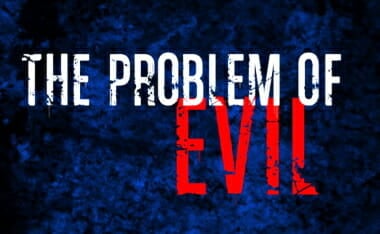
Hear Atheists Themselves on Evil and Absolutes [UPDATED!]
I wish to start out with an excerpt from a chapter in my book where I use two scholarly works that use Darwinian naturalism as a guide to their ethic:
- Dale Peterson and Richard Wrangham, Demonic Males: Apes and the Origins of Human Violence (New York, NY: Houghton Mifflin Harcourt Publishing, 1997).
- Randy Thornhill and Craig T. Palmer, A Natural History of Rape: Biological Bases of Sexual Coercion (Cambridge: MIT Press, 2000).
My incorporation of these works into my book (quote):
“Lest one think this line of thinking is insane, that is: sexual acts are something from our evolutionary past and advantageous; rape is said to not be a pathology but an evolutionary adaptation – a strategy for maximizing reproductive success….. The first concept that one must understand is that these authors do not view nature alone as imposing a moral “oughtness” into the situation of survival of the fittest. They view rape, for instance, in its historical evolutionary context as neither right nor wrong ethically. Rape, is neither moral nor immoral vis-à-vis evolutionary lines of thought, even if ingrained in us from our evolutionary paths of survival. Did you catch that? Even if a rape occurs today, it is neither moral nor immoral, it is merely currently taboo. The biological, amoral, justification of rape is made often times as a survival mechanism bringing up the net “survival status” of a species, usually fraught with examples of homosexual worms, lesbian seagulls, and the like.”
(pp. 7-9 of Roman-Epicurean-ism-Natural-Law-and-Homosexuality)
Now, hear from other atheist and evolutionary apologists themselves in regard to the matter:
Richard Dawkins
(h/t: TrueFreeThinker) – A Statement Made by an atheist at the Atheist and Agnostic Society:
Some atheists do believe in ethical absolutes, some don’t. My answer is a bit more complicated — I don’t believe that there are any axiological claims which are absolutely true, except within the context of one person’s opinion.
That is, beauty is in the eye of the beholder, and so are ethics. So, why is Adolf Hitler wrong? Because he murdered millions, and his only justification, even if it were valid, was based on things which he should have known were factually wrong. Why is it wrong to do that? Because I said so. Unless you actually disagree with me — unless you want to say that Adolf Hitler was right — I’m not sure I have more to say.
[side note] You may also be aware that Richard Dawkins stated,
…I asked an obvious question: “As we speak of this shifting zeitgeist, how are we to determine who’s right? If we do not acknowledge some sort of external [standard], what is to prevent us from saying that the Muslim [extremists] aren’t right?”
“Yes, absolutely fascinating.” His response was immediate. “What’s to prevent us from saying Hitler wasn’t right? I mean, that is a genuinely difficult question. But whatever [defines morality], it’s not the Bible. If it was, we’d be stoning people for breaking the Sabbath.”
I was stupefied. He had readily conceded that his own philosophical position did not offer a rational basis for moral judgments. His intellectual honesty was refreshing, if somewhat disturbing on this point….
Stated during an interview with Larry Taunton, “Richard Dawkins: The Atheist Evangelist,” by Faith Magazine, Issue Number 18, December 2007 (copyright; 2007-2008)
Lewis Wolpert
From the video description:
Atheists Trying to Have Their Cake and Eat It Too on Morality. This video shows that when an atheist denies objective morality they also affirm moral good and evil without the thought of any contradiction or inconsistency on their part.
Dan Barker
This is from the video Description for the Dan Barker video below:
The atheist’s animal-level view of “morality” is completely skewed by dint of its lack of objectivity. In fact, the atheist makes up his own personal version of “morals” as he goes along, and this video provides an eye-opening example of this bizarre phenomenon of the atheist’s crippled psyche:
During this debate, the atheist stated that he believed rape was morally acceptable, then he actually stated that he would rape a little girl and then kill himself — you have just got to hear his psychotic words with your own ears to believe it!
He then stammered and stumbled through a series of ridiculously lame excuses for his shameful lack of any type of moral compass.
To the utter amazement of his opponent and all present in the audience, the gruesomely amoral atheist even goes so far as to actually crack a sick little joke on the subject of SERIAL CHILD-RAPE!
:::shudders:::
Meanwhile, the Christian in the video gracefully and heroically realizes the clearly objective moral values that unquestionably come to humanity by God’s grace, and yet are far beyond the lower animal’s and the atheist’s tenuous mental grasp. Be sure to keep watching until the very end so that you can hear the Christian’s final word — it’s a real knuckle-duster!
Atheist dogma™ not only fails to provide a stable platform for objective human morality for its adherent — it precludes him even the possibility. It’s this very intellectual inability to apprehend any objective moral values that leads such believers in atheist dogma™ as Hitler, Stalin, Mao, and Dahmer to commit their horrific atheistic atrocities.
Any believer in atheist dogma™, given sufficient power, would take the exact same course of action that Hitler did, without a moment’s hesitation.
Note as well that evolutionary naturalism has very dogmatic implication, IF — that is — the honest atheist/evolutionist follow the matter to their logical conclusions, via the ineffable Dr. Provine:
William Provine
Atheist and staunch evolutionist Dr. William Provine (who is often quoted by Richard Dawkins) admits what life has in stored if Darwinism is true. The quote comes from his debate here with Dr. Phillip E. Johnson at Stanford University, April 30, 1994.

The Fine Tuning of the Universe
One should watch the DVD documentary, The Privileged Planet. Also, Dr. Craig’s previous installment of this building argument, below:

